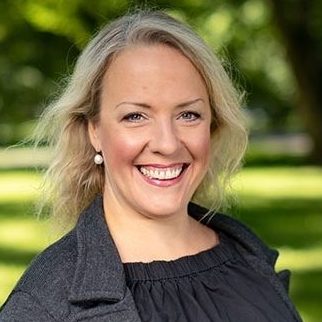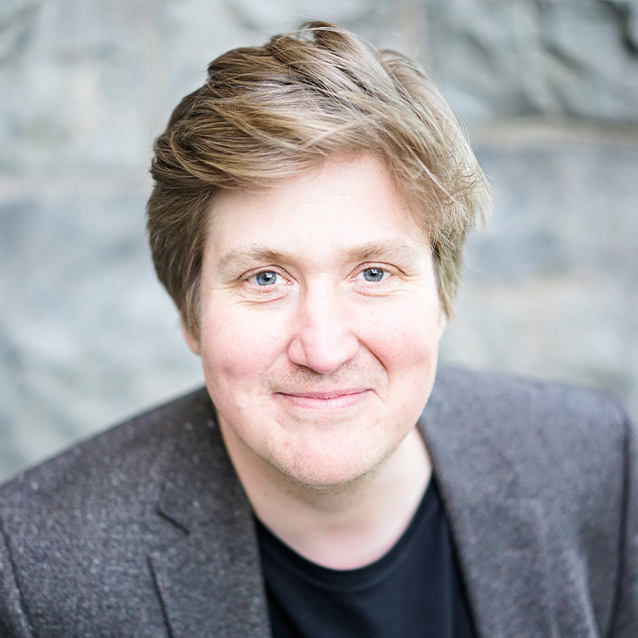This website uses cookies so that we can provide you with the best user experience possible. Cookie information is stored in your browser and performs functions such as recognising you when you return to our website and helping our team to understand which sections of the website you find most interesting and useful.

- This event has passed.
AI for Humanity and Society 2022
November 17, 2022 @ 9:30 am - 5:00 pm
Dreams, Realities, and Futures:
Risks and Consequences of AI in Formative Times
Welcome to the third WASP-HS Conference on AI, Humanity and Society – a meeting place for dialogue on the opportunities and challenges of artificial intelligence and autonomous systems with a strong focus on research in humanities and social science.
Artificial intelligence (AI) has never been so topical as it is today. The use of AI is more common than it has ever been before. The use of AI raises many questions and issues for businesses, NGO’s, researchers and politicians. In these formative times, the possibilities, risks, and consequences of AI have never been more pressing. Today, all actors that come into contact with, create, or work with AI have different experiences of its practical realization and in the challenges that they perceive.
At the WASP-HS conference AI for Humanity and Society 2022, actors from different sectors and areas of society meet in order to share experiences, formulate challenges and expectations and envisage how a more rapid development of AI can be managed in a sustainable way for society and humanity, which includes, human rights as well as economy and ecology
Questions that will be touched upon are pivotal political issues, for example, how AI can be regulated in a way that supports research and innovation but still respects the rule of law and human rights. How can we organize society so that it can take into account the advantages and possibilities of a rapidly developing AI?
Of special interest for the conference is AI and human rights in the sense that it takes an interest in how AI relates to biases, justice, equality, predictability, and transparency. However, rather than proposing algorithmic solutions to these problems the conference aims to highlight these questions as part of producing regulation and legitimacy in a wider social and organizational context.
No AI system can be completely transparent or just, and the ethics of AI cannot solely focus on the design of transparent and just systems. Sustainable AI solutions need to consider social, legal, as well as institutional dimensions of AI systems. How do we then think about adapting systems to different societies, contexts, and organizations? How do we create responsible research and innovation that is also aware of different societies, contexts, and organizations? How do we imagine a better future with AI systems?
Keynotes

Abeba Birhane
Senior Fellow in Trustworthy AI at Mozilla Foundation
Abeba Birhane is a Senior Fellow in Trustworthy AI at Mozilla Foundation and an Adjunct Lecturer/Assistant Professor at the School of Computer Science at University College Dublin, Ireland. Her interdisciplinary research explores various broad themes in cognitive science, AI, complexity science, and theories of decoloniality. Birhane examines the challenges and pitfalls of computational models (and datasets) from a conceptual, empirical, and critical perspective.

Martin Ulbrich
Senior Expert in the AI policy Unit (CNECT.A.2) of the European Commission
An economist by training, Martin Ulbrich has been working on digital issues for more than twenty years in the Commission from different angles. He has joined the AI policy team in 2018, contributing to the drafting of the White Paper on AI and the impact assessment of the AI Regulatory Act proposal. Before joining the AI unit in 2018 he had worked most recently on the impact of digitisation on the labour market, and before that on geoblocking and on the economics of networks.
Martin Ulbrich has previously worked among others in the European Commission’s Joint Research Center, where he analysed ICT research across the EU, as well as in its industrial policy and transport departments.
Conference Program and Schedule
17 November
The conference AI for Humanity and Society is a hybrid event and takes place both on-site and online. Please note that the program will differ slightly if you choose to participate online. The conference is held in English only and is free of charge.
09:30-10:00 Coffee
10:00-10:15 Welcome and Introduction
Anna-Sara Lind, Professor of Public Law, Uppsala University
Francis Lee, Associate Professor, Technology and Society, Chalmers University of Technology
Virginia Dignum, Professor, Program Director of WASP-HS, Umeå University
10:15-11:00 Tomorrow’s AI Politics: Which Roads Will Follow?
Keynote Speaker Martin Ulbrich, Senior Expert in the AI Policy Unit (CNECT.A.2) of the European Commission
Discussant Carolina Brånby, Digital Policy Director at The Confederation of Swedish Enterprise (Svensktnaringsliv) and WASP-HS Board
11:00-12:00 Mapping the Grand Social Challenges of AI
12:00-13:30 Lunch, Coffee, and Mingle
13:30-14:30 AI for All Humanity?
Keynote Speaker Abeba Birhane, Mozilla Foundation, the School of Computer Science at University College Dublin
Discussants
Jeroen van den Hoven, Professor of Ethics and Technology, Delft University of Technology
Maria Marouda, Chair, European Commission against Racism and Intolerance
Jennifer Rhee, Associate Professor at the Department of English at Virginia Commonwealth University
14:30-15:30 Afternoon Coffee and Theme Corners
15:30-16:15 Discussant Panel: What’s Next for Social Sciences and the Humanities in AI?
Discussants
Pernilla Jonsson, Ericsson Research and WASP-HS Board
Anders Sandberg, Senior Research Fellow, Future of Humanity Institute, University of Oxford
Katherine Harrison, Associate Professor, Docent, Department of Thematic Studies (TEMA), Linköping University
Andrew McAfee, Co-Founder and Co-Director of MIT’s Initiative on the Digital Economy. Principal Research Scientist at the MIT Sloan School of Management
16:15-16:30 Concluding Words
Anna-Sara Lind, Professor of Public Law, Uppsala University
Francis Lee, Associate Professor, Technology and Society, Chalmers University of Technology
16.30-17:00 Cocktail and Mingle
Registration
Registration for AI for Humanity and Society 2022 is closed. More detailed information about the conference will be sent via e-mail closer to the date of the event to those who have registered.
Conference Chairs

Anna-Sara Lind
Professor, Department of Law, Uppsala University

Francis Lee
Associate Professor, Technology and Society, Chalmers University of Technology

